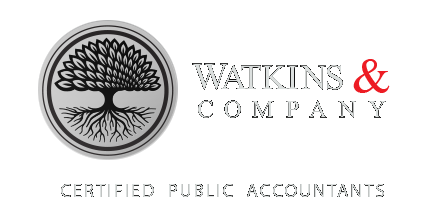PROFITS ARE GOOD, CASH FLOW IS GREAT
Importance of Cash Flow in Small Business Accounting
Businesses struggling with cash flow often pose the question, “If my business is profitable, where is all the money?” The way cash moves in and out of a business is vital to understanding business finance and small business accounting. Many small business owners do not realize the difference between making and managing money. An aspiring entrepreneur often starts a business in hopes of creating an innovative new product or service without much small business accounting knowledge or management experience. As a result, important finance terms such as budgeting, forecasting, and cash flow are overlooked until bills pile up and expenses can’t be covered. Here are some things to consider in learning the basics of how cash flow and profits work.

Cash Flow and Profit: understanding the difference
Your profit is simply your revenues less your expenses, i.e. money left over after all bills are paid. Conversely, cash flows are influx and outflows of cash detailing where the money goes and for what purpose. One point of difficulty for businesses, is that increasing sales activity does not necessarily indicate an immediate increase in cash flow. Rather, increased sales can indicate an immediate reduction in cash flow. But why would you want less of something that generates revenue? Sales call for immediate cash outlay in several different areas. These include the cash used to cover manufacture, packaging, and distribution, which must occur in advance of delivery and payment. This time frame between production and payment is where cash flow management lives.
Monetary Routine Management
- Collections – What is the state of accounts receivable? Are they current or how far in arrears are they? Place an emphasis on existing receivables and diligently encourage payments to improve cash flow. Determine methods of collection for invoices more than X days past due.
- Delay Cash Payments – Review how your orders for materials are handled with vendors. Is there a possibility of setting a contract where a percentage is paid at the beginning and the remaining balance paid within the month? This can improve cash flow by keeping it “in-house” longer.
- Raising More Capital – It’s okay if it becomes necessary to solicit cash through loans or other types of capital raising arrangements. In this case, careful planning and initial attention to cash flow are absolutely essential. They can be big helpers in timing and achieving more favorable loan agreements and interest rates.
Don’t Compete with Yourself
Capitalism works because of competition, but it can be the very thing that drives a business into the ground. When a business incrementally shaves down profit margins in hopes to compete and win contract bids, they instead head towards a profitless result in the end. Essentially, money flows through the business, but doesn’t stay very long in the business accounts. Establish honestly and early on whether you can healthily sustain a reduction in costs or even a loss just to win bids and gain more business. Small business accounting and strategic planning is required to determine when taking a loss is and isn’t advantageous in the long-run. Of course, if focusing on this type of activity reduces valuable time, it is certainly time to bring in some additional advisory assistance, something of which Watkins & Company excels.





You must be logged in to post a comment.